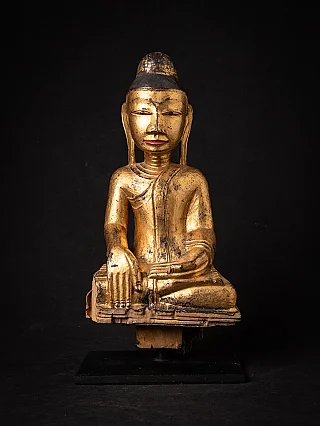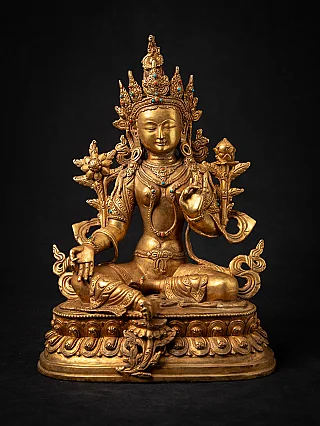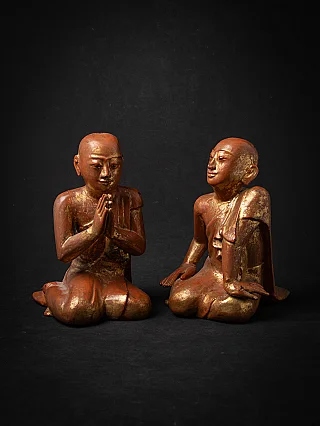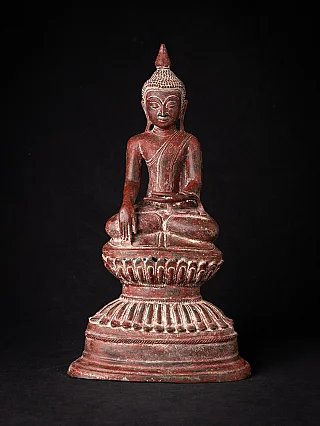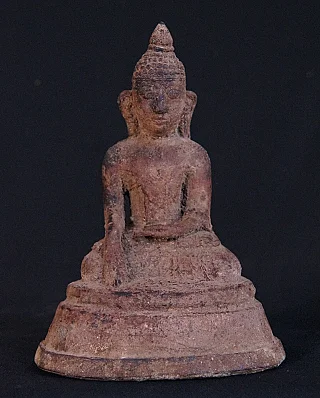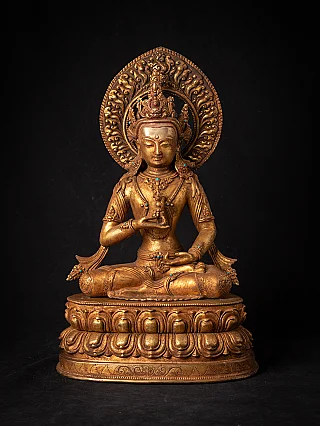Sangha
Author : Peter Vredeveld

The Sangha is the order of ordained Buddhist monks (bhikkhus) and nuns (bhikkhunis), founded by the Buddha over 2500 years ago.
The Three Jewels, often called the Triple Gem or Three Refuges, form the bedrock of Buddhism, holding profound importance in every facet of the faith. Represented by Buddha, Dharma, and Sangha, these jewels encapsulate the core principles that guide Buddhist practitioners on their spiritual journey.
Chanting as Devotion
"Namo buddham sharanam gacchami. Namo dharmam sharanam gacchami. Namo sangham sharanam gacchami"
The above quote serves as a universal expression of devotion among Buddhists worldwide. This chanting ritual, resonating in temples, monasteries, and homes, signifies a profound commitment to refuge in the Three Jewels.
Interpretation of the Three Jewels
- Buddha (The Yellow Jewel): Taking Refuge in Buddha
The reverence for Buddha, the Enlightened One, is at the heart of Buddhism. Beyond being a historical figure, the Buddha embodies Enlightenment and compassion. Taking refuge in Buddha involves acknowledging the historical Buddha and the latent potential for Enlightenment within every sentient being.
- Dharma (The Blue Jewel): Taking Refuge in Dharma
The Blue Jewel, Dharma, represents the teachings of the Buddha and the ultimate truth of life that he realized. It extends beyond a mere set of doctrines; Dharma encompasses the cosmic order and the ethical principles that govern existence. To take refuge in Dharma is to hold onto these teachings as a guiding light on the path to Enlightenment.
- Sangha (The Red Jewel): Taking Refuge in Sangha
Sangha, the Red Jewel, refers to the monastic community where Buddhist monks join together in worship and practice. It is a supportive environment for spiritual growth and communal sharing of insights. Taking refuge in Sangha involves recognizing the importance of community as fellow practitioners collectively navigate the challenges of the spiritual journey.
Sangha

Sangha is Sanskrit and Pali, which refers to a monastic community of Buddhist monks or nuns. This community is also referred as Bhikkhu-sangha or bhikkhuni-sangha. It is the community where Buddhist monks or nuns enjoy the jewels of refuge, learn the teaching, seek the understanding, and try to embody the Dharma through sharing knowledge and understanding with others.
Sangha can be defined as:
"Sangha. Community. This word has two levels of meaning: (1) on the ideal (arya) level, it denotes all of the Buddha's followers, lay or ordained, who have at least attained the level of srotapanna; (2) on the conventional (samiti) level, it denotes the orders of the Bhiksus and Bhiksunis."
Due to various changes and the temptation of life in the world, Sangha is one of the safest and most suitable environments for advancing toward Enlightenment and Dharma. If a disciple is to practice Dharma, it is best to learn from the teachings and examples of a teacher or someone who has already done it.
The existence of Sangha is of great importance and cannot be overestimated. Trying to achieve Enlightenment by yourself takes a lot of work. It is better to open yourself to others, support each other, and learn from teachers. Teaching others is a crucial concept through which one can achieve Enlightenment or let go of selfishness and ego. This is what Sangha is all about. Sharing our spiritual lives with the people in a community can guide and support other practitioners.
The Invaluable Qualities of Sangha
The qualities of Sangha, as regularly chanted on Upasatha days, are a guidepost for practitioners:
- Faith: The unwavering trust in the path and the teachings.
- Moral Shame: A conscientious awareness that prevents one from engaging in unethical conduct.
- Fear of Misconduct: A healthy reverence for ethical standards and a commitment to avoiding harmful actions.
- Proficiency in Learning: A dedication to deepening one's understanding of the Dharma.
- Resolution: A steadfast determination to traverse the path despite challenges.
- Mindfulness: A continual awareness of one's thoughts, words, and actions.
- Wisdom: The cultivation of discernment and insight into the nature of reality.
These qualities collectively contribute to the vibrancy and sanctity of the Sangha, making it an indispensable aspect of the Buddhist spiritual journey.
Share this page


















